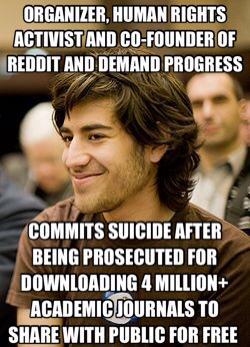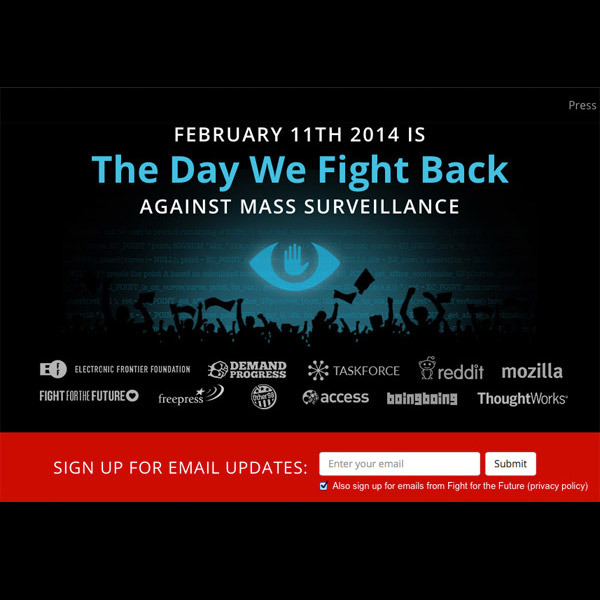THE DAILY DOT: The date is set: On Feb. 11, the Internet will finally formally protest the type of spying revealed by former National Security Agency contractor Edward Snowden. It’s called “The Day We Fight Back.” A host of familiar sites and companies with an activist bent—including Reddit, Mozilla, and BoingBoing—are leading the charge, and organizers expect plenty more to join in the coming weeks. It’s reminiscent of two years ago, when the above companies, plus heavy hitters like Wikipedia and Google, went on “strike” to protest the Stop Online Piracy Act (SOPA), a bill many feared would have made it easy to shut down websites for alleged copyright infringement. It’s not clear if they’ll go that far this time—that’s “tbd,” as Reddit General Manager Erik Martin told the Daily Dot—but the sites will at least all adopt anti-spying banners on that day and encourage others to do the same. To be clear, pushing back against agencies like the NSA and the U.K.’s Government Communication Headquarters is a far more difficult task than calling lawmakers en masse to argue against a single bill, as was the case with SOPA. “In this case, we have to take a first step,” Demand Progress Executive Direct David Segal wrote on a Reddit thread to promote the protest. “But we need our legislators to hear from people who love the Internet that we won’t stand by and let it be turned into a giant tool for mass surveillance.” MORE
MOTHERBOARD: On January 11, 2013, federal prosecutors, in an aggressive campaign to bring high-profile convictions against hackers, finally broke the spirit of talented internet activist and technologist Aaron Swartz. Faced with 35 years in prison and thousands of dollars in fines, not to mention a long battle with depression, Swartz committed suicide. And with that, one of the great voices of internet activism fell silent. Swartz, co-founder of Demand Progress, and developer of the RSS feed, Creative Commons, and Infogami (the site that would merge with Reddit), had willingly fought the government over the JSTOR database theft. When Swartz placed a laptop in an MIT wiring room and began downloading 4.8 million academic papers, it was the distillation and practical application of his “Guerrilla Open Access Manifesto,” where those with technical skill had a duty to make humanity’s  educational birthright open to the world. With his suicide, the government crusade to make an example out of Swartz backfired, turning a young internet legend into a virtual martyr. MORE
educational birthright open to the world. With his suicide, the government crusade to make an example out of Swartz backfired, turning a young internet legend into a virtual martyr. MORE
ELECTRONIC FREEDOM FOUNDATION: In January 2006, EFF filed our first lawsuit challenging the constitutionality of NSA mass surveillance. In January 2012, the Internet rose up to protest and defeat SOPA, legislation that sought to censor the Internet in the name of copyright enforcement. In January of last year, we lost a dear friend and fierce digital rights advocate, Aaron Swartz. We vowed to defend the rights of Internet users everywhere in his memory. Now we have a new challenge: ending mass surveillance by the NSA. The Snowden revelations have provided us with disturbing details and confirmation of some of our worst fears about NSA spying. The NSA is undermining basic encryption standards, the very backbone of the Internet. It has collected the phone records of hundreds of millions of people not suspected of any crime. It has swept up the electronic communications of millions of people indiscriminately, exploiting the digital technologies we use to connect and inform. But we aren’t going to let the NSA ruin the Internet. Inspired by the memory of Aaron, fueled by our victory against SOPA, EFF is joining forces with a coalition of liberty-defending organizations to fight back against NSA spying. Today, on the eve of the anniversary of Aaron’s death, we ask you to join us in stepping up to the plate once again. Bring your creativity, your networks, your art, and your dedication and join us in a month of action, culminating in an Internet-wide protest on February 11. MORE
RELATED: The Day We Fight Back

